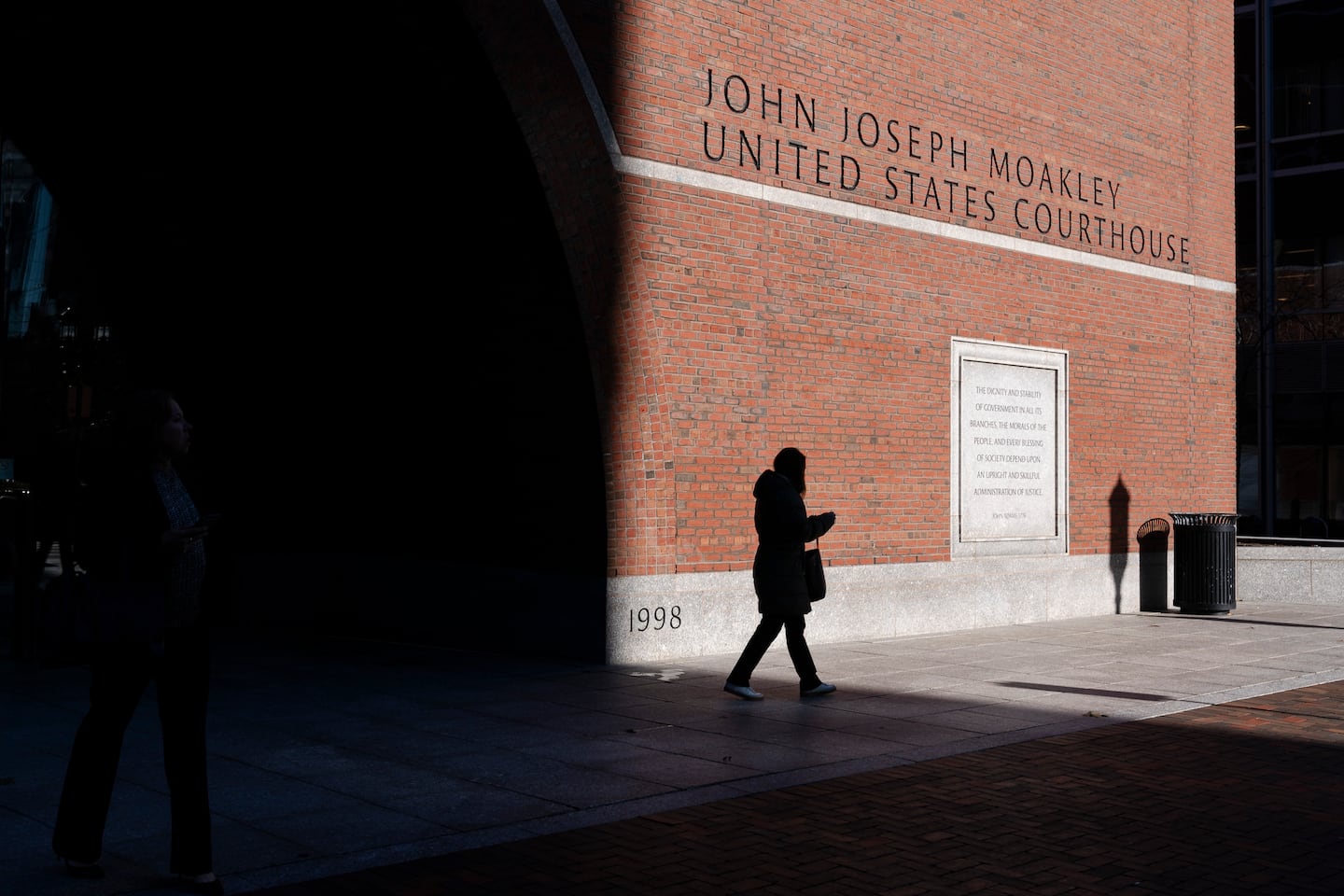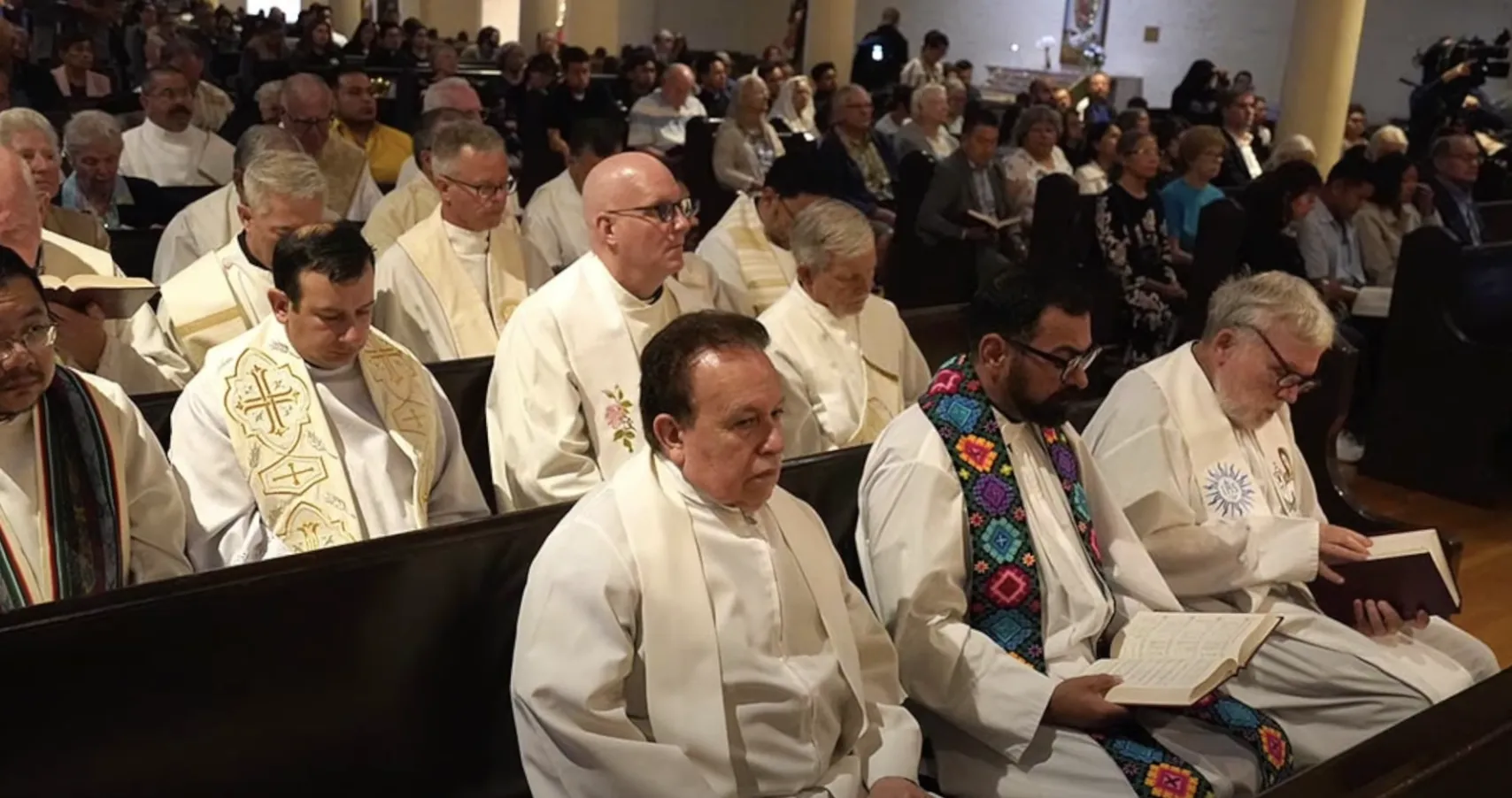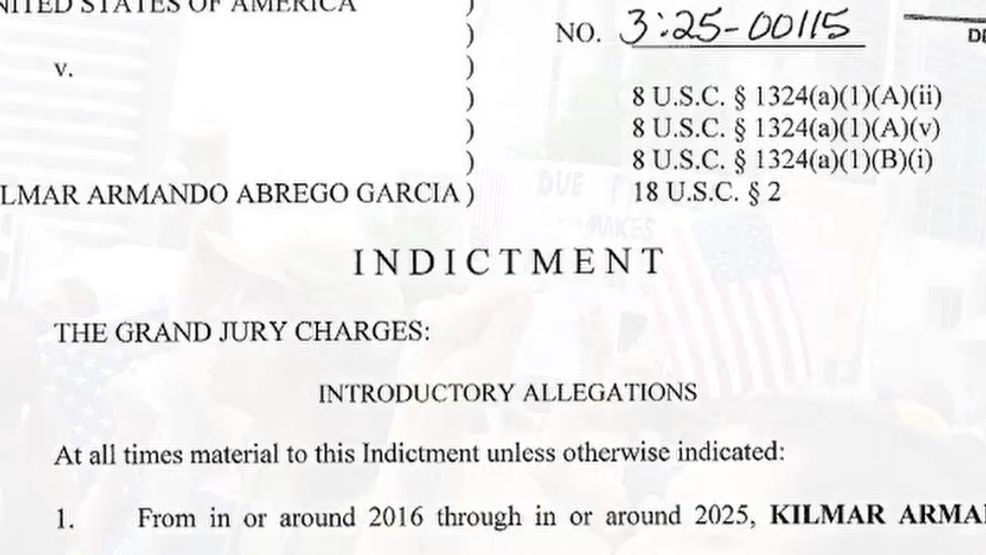
In orders asserting their authority to decide the claims in US District Court, the judges wrote: “The protections of the Constitution apply to all persons within the jurisdiction of the United States, including citizens and non-citizens alike, and including those persons who are present in the United States without authorization.”
They pointed to language in a landmark 1982 Supreme Court ruling that upheld the rights of undocumented children to a free public education, which reads: “even aliens whose presence in this country is unlawful, have long been recognized as ‘persons’ guaranteed due process of law by the Fifth and Fourteenth Amendment.”
US District Judge Indira Talwani, in an order issued April 28, was the first to stress the constitutional rights of immigrants, when she prevented the government from transferring an immigrant to another jurisdiction. The next day, Judge Leo T. Sorokin wrote a nearly identical order, then a dozen other judges adopted that language in orders barring the out-of-state transfer of immigrants who filed habeas petitions.
The rulings have provided critical relief for immigrants in Massachusetts at a time when many are immediately being shipped to detention facilities hundreds of miles away or deported without a hearing, according to advocates.
“It’s been heartening to see,” said attorney Benjamin Tymann, who represents several immigrants who filed habeas petitions. “These are completely reasonable orders for judges to put in place because all they are saying is, ‘OK, let’s hit pause’ … and make the government make some showing on the merits of their arrest.’”
Immigration lawyers have accused Immigration and Customs Enforcement of moving immigrants across the country to disrupt or delay efforts to challenge their arrests and removal from the United States, and to place them under the jurisdiction of more conservative federal courts.
In one case, US District Judge Denise Casper temporarily barred the government from transferring 25-year-old Luis Fernando Olmos Ramirez while she considered his claim that ICE violated his rights when its agents arrested him in Lynn on May 24.
Tymann argued there was “no lawful basis” to arrest Ramirez, who was granted special immigrant juvenile status after coming to the United States from his native El Salvador as an unaccompanied minor in 2015 and has since lived with his father in Lynn. He has no criminal record and has an application pending for a Green card, according to Tymann.
In her order, Casper wrote that relocating Ramirez to a facility outside Massachusetts “will exponentially increase the risks that he will be further deprived of due process and unlawfully removed from the United States to dangerous conditions in El Salvador or elsewhere.”
On June 10, Ramirez voluntarily dismissed his petition after an immigration judge released him on bond. But Tymann credits Casper’s intervention with paving the way for his release.
“Without the no-transfer order, he may have been sent to Texas or somewhere else,” Tymann said.
US Attorney Leah Foley, whose office represents the government in habeas petition cases, acknowledged in a statement that the Supreme Court “has established that all persons in the United States have Constitutional protections, regardless of their immigration status.”
She said her office has no authority to tell ICE where to house immigrants in its custody, but immediately forwards the agency the judges’ orders barring the out-of-state transfer of immigrants.
A spokesperson for ICE did not respond to requests for comment about the habeas petitions and allegations that agents have made unlawful arrests.
But the agency has made clear that it has worked to ramp up deportations under a directive of the Trump administration.
ICE Acting Director Todd Lyons said during a press conference last month that agents were targeting dangerous and violent criminals, but will arrest anyone they encounter who is in the country illegally.
And he argued that their rights are not being violated.
“ICE doesn’t just scoop people off the street and remove them,” Lyons said. “Everyone gets due process and that is what the US attorney’s office is for. It’s what the immigration courts are for.”
Some of the petitions before US District Court judges were filed by people who entered the country without permission, then surrendered themselves to immigration officials and had been allowed to remain free as they pursued lawful status. They allege they were arrested without probable cause or due process while driving to work or dropping their children off at school.
In some cases, petitioners allege they were leaving the Chelmsford immigration court after judges set hearings for a future date, only to be arrested in the hallways by immigration agents and told they were facing expedited removal from the country.
“What we are seeing in this country is just an assault on the rule of law,“ said attorney Todd Pomerleau, whose Boston firm, Rubin Pomerleau, filed habeas petitions on behalf of five immigrants in recent weeks.
One of Pomerleau’s clients, Andre Damasio Ferreira, 40, was born in Brazil, came to the United States nearly 20 years ago, and lives in Everett with his wife, who is battling cancer. Their two children, 13 and 8, are US citizens.
Ferreira, who works for a flooring company, was a passenger in a pickup truck being driven by a co-worker on May 30 when they were stopped by armed ICE agents who demanded to see their passports and questioned them about their immigration status, according to Pomerleau. Ferreira was arrested and is being held at the Plymouth County Correctional Facility pending removal proceedings.
US District Judge William G. Young issued an order June 5 temporarily blocking Ferreira’s transfer out of state, using the same language as his colleagues while stressing Ferreira’s constitutional rights. Young wrote that although federal district courts don’t generally have jurisdiction to review orders of removal by an immigration court, they do have jurisdiction over violations of the Constitution.
The government argued in court filings on June 12 that Ferreira’s arrest was lawful and urged Young to dismiss his petition. ICE agents stopped Ferreira because he looked like someone else they were targeting, then discovered he was unlawfully present in the country and had previously been removed in 2005, according to the government. The judge has yet to rule on the case.
In at least two cases, immigrants were mistakenly transferred — one to Louisiana and the other to Mississippi — in violation of judges’ orders, according to court filings. The US attorney’s office apologized and the petitioners were brought back to the state.
Though judges have issued orders halting transfers by the Trump administration as early as January, they specifically began adopting the language reinforcing immigrants’ constitutional rights after the arrest of Tufts PhD student Rümysa Öztürk. She alleges the government is moving to deport her solely because she coauthored a pro-Palestinian op-ed in the college newspaper.
She was arrested by masked ICE agents outside her Somerville apartment in March. By the time her lawyers filed a habeus petition that night, she had already been moved out of state and was ultimately transferred to a detention facility in Louisiana, a conservative district. But last month, a federal judge in Vermont ordered her released, while he considers her claim that the government violated her free speech and due process rights.
“Now we are seeing a lot more detentions that violate due process rights and that’s not an issue that immigration judges are usually able to address,” said Shantanu Chatterjee, a Chelsea attorney who has filed habeas petitions on behalf of several immigrants. He said more immigration lawyers are seeking relief for their clients in federal district courts.
The flurry of rulings “sends a message to everyone that federal courts are able to step in when no one can,” he said. “ICE does not have unlimited power.”
Shelley Murphy can be reached at shelley.murphy@globe.com. Follow her @shelleymurph.



